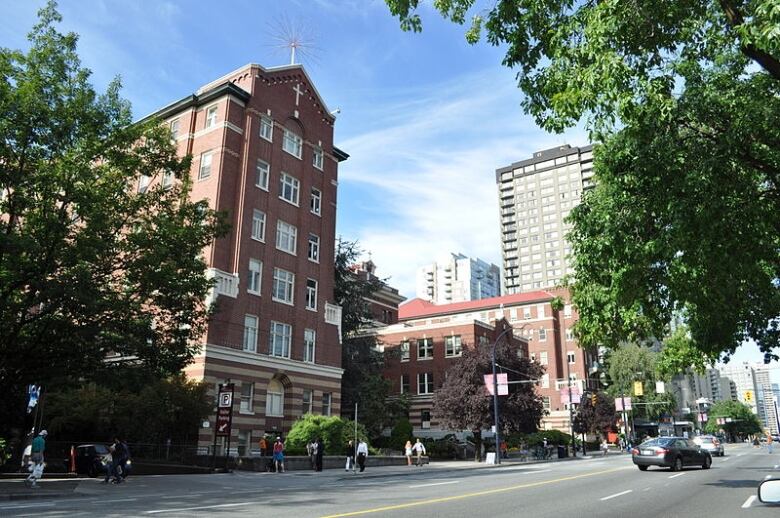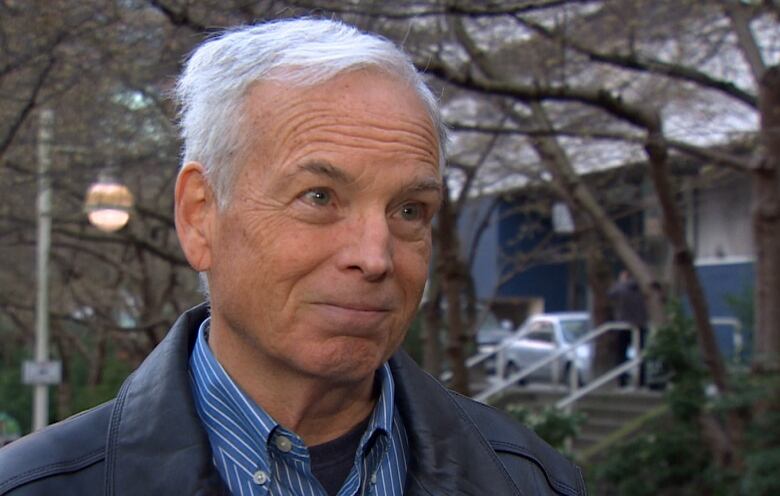Doctor-assisted death 'not permitted' at Vancouver's Providence Health Care centres: memo
Health care provider says it will 'monitor and conform' to regulatory and legislative demands

A leaked memo reveals physician-assisted death is "not permitted" at a Catholic-based health provider in Vancouver, putting into question how it will adjust its policies when a recent Supreme Court of Canada ruling becomes federal legislation.
Providence Health Careoperates hospitals and health services in Vancouver, including St. Paul's Hospital downtown.
Theinternalmemo, obtained by CBC News, outlines PHCpolicies in light of the physician-assisteddeath (PAD) ruling. Federal legislation is expected tocomeinto effect in June.
"PHC provides health care in conformity with the Catholic Health Alliance of Canada (CHAC)Health Ethics Guide," says the memo.
"Accordingly, and at the most fundamental level, PAD contradicts the basic tenets of Catholic health care wherein life is held to be sacred from conception to natural death and not permitted in Catholic health care institutions such as Providence."
- Doctor-assisted dying law: Supreme Court hears Ottawa needs more time for comprehensive plan
- Right-to-die debate ignites calls for better palliative care
- Supreme Court says yes to doctor-assisted suicide in specific cases
The memo was sent on Feb. 16 to the PHCclinical leadership team and medical advisory committee from the director of ethics services and the head of risk management for patient safety and patient relations.

It explains that until the legislation comes into effect, patients wishing to pursue physician-assisted death need to apply for a court-ordered exemption.
After that, the organization willconstruct "robust policies for handling requests for PADas the facts of the legislation and regulations become known."
However, it adds PHC"will monitor and conform to the regulatory and legislative demands as they take shape."
In response to CBC News, a PHC spokesperson said, "It's premature for us to engage in media discussion until we have clarity on a number of fronts on this issue, and how B.C.'s health system will develop its approaches to meet patient needs."
Individualvs institutional refusal
Jim Stephenson, theboard chair of Dying with Dignity Canada, said the SCC ruling does allowindividual doctors to refuse to provide physician-assisteddeath for reasons of conscience.
"For the patient's sake the [doctor]should have a duty to refer to someone else, and it should apply to individuals and not institutions. That makes a big practical difference," he said.

However, he says he worries about what will happen to patients who want to end their life if PHC's policy is still in place after the legislation comes into effect.
"If it's the whole institution, you're talking about moving a person suffering terribly near the end of death to another hospital, and that's expensive, uncomfortable and really unfair."
Stephenson says it's unacceptable that such a large, publicly-fundedinstitution refuse to provide physician-assisted death.
With files from Kamil Karamali












_(720p).jpg)


 OFFICIAL HD MUSIC VIDEO.jpg)
.jpg)



























































































